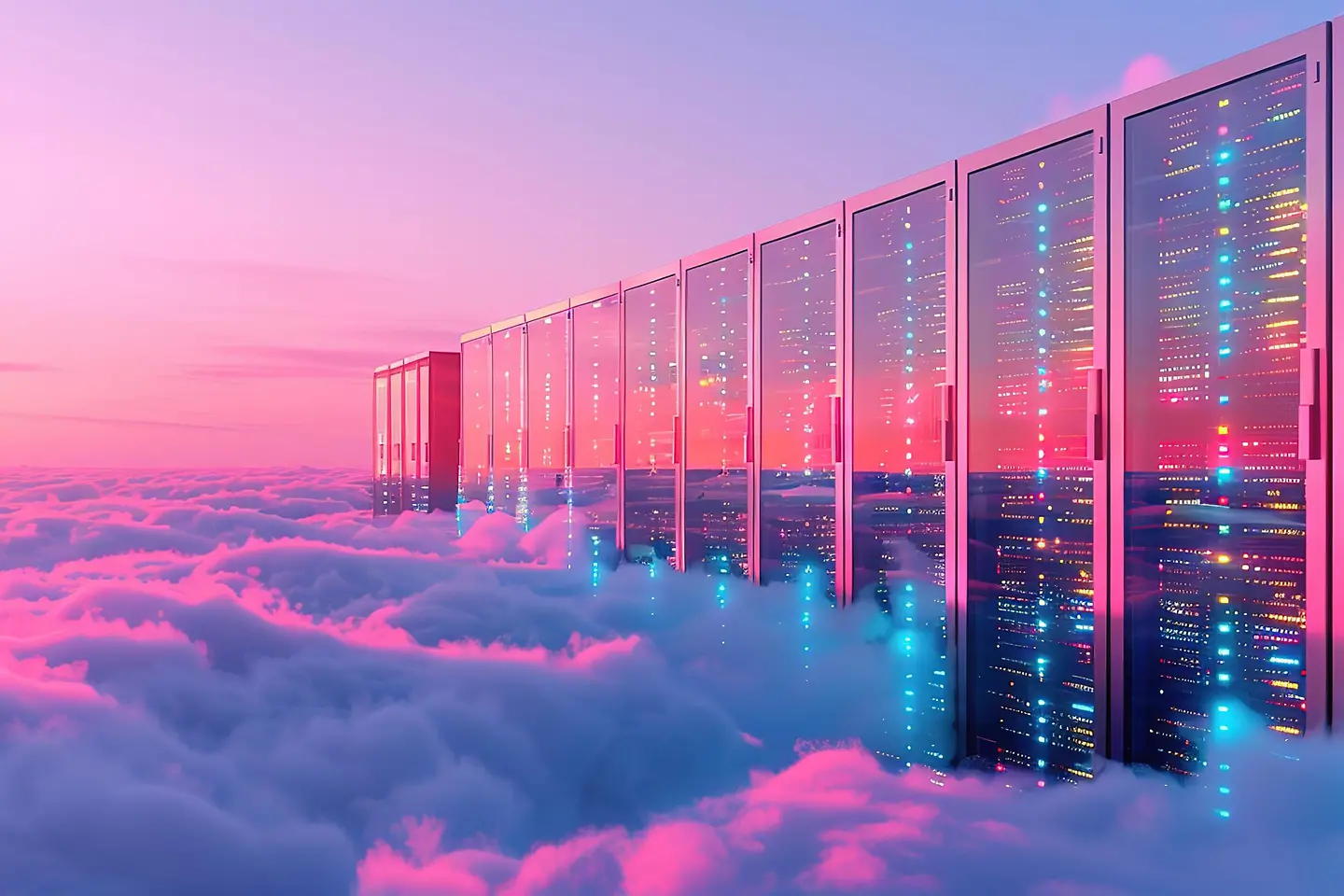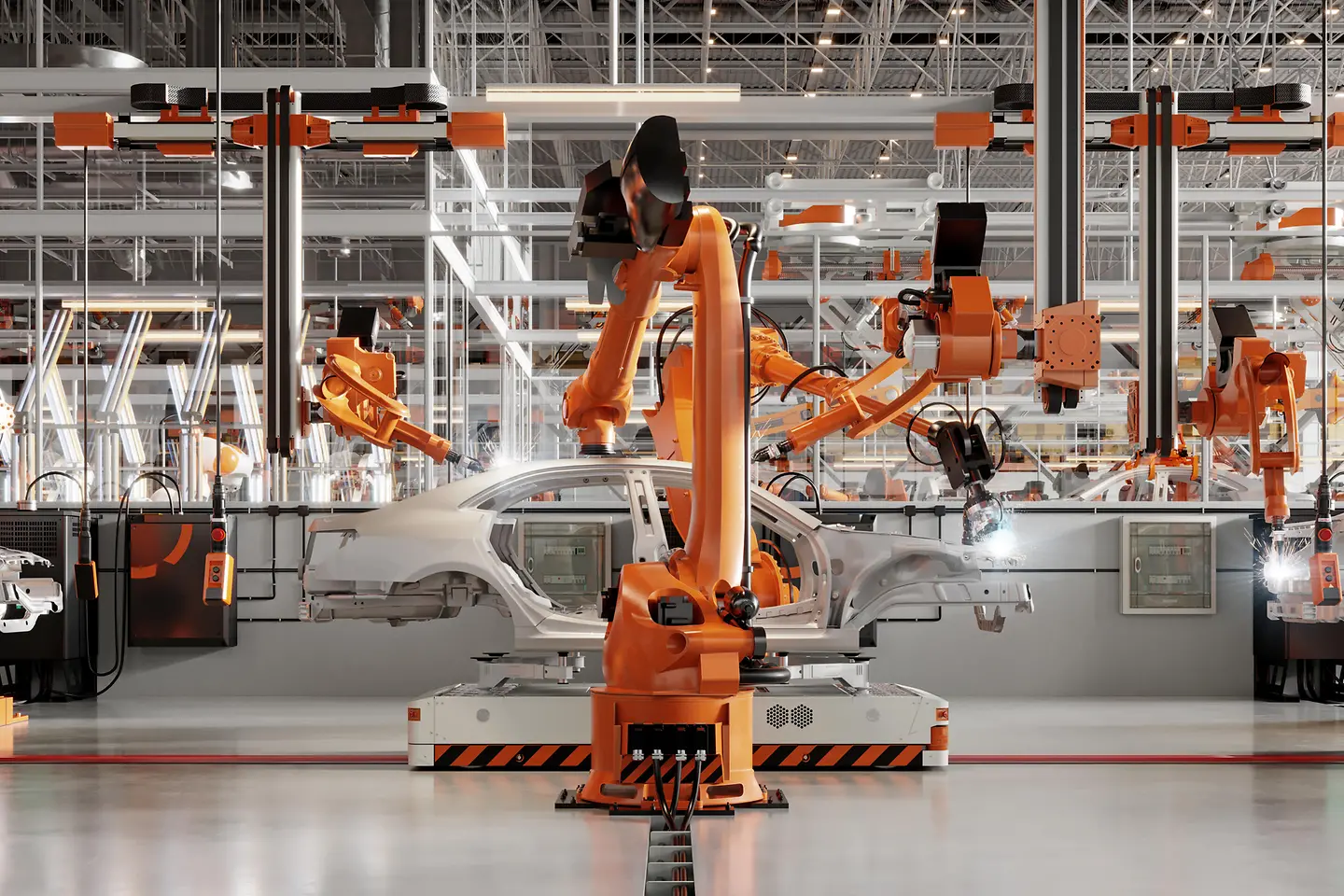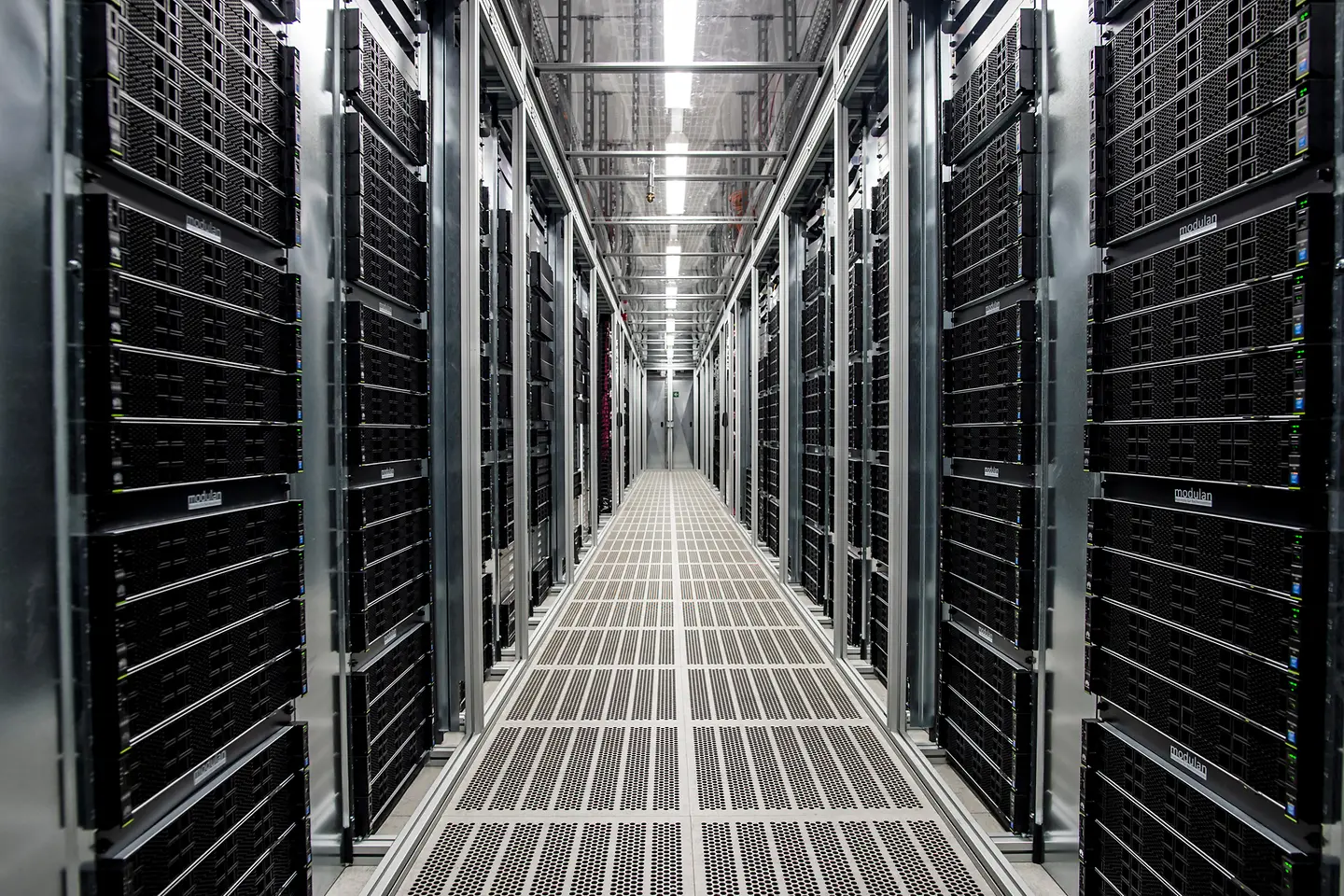
Many people associate the term dream factory with Hollywood – the place where imagination and technology unite to create emotions. But the concept has changed: today, new dream factories are being built in industry. The focus is on artificial intelligence (AI), which turns visions into reality – not on the screen, but in factory halls and research centers. These AI factories enable a world where production and innovation are redefined.
A look at history shows how much technological breakthroughs have changed our world. The first industrial revolution mechanized labor, the second brought mass production through electricity and assembly lines, and the third digitized processes with computers and robotics. But it is only the fourth industrial revolution – characterized by AI, networking, and data – that enables machines to learn and adapt.
This means that we are at a turning point in human history. For the first time, we are creating systems that can not only process data but also perceive, understand, and act on the world. AI sees, hears and reacts. It analyzes complex patterns, recognizes speech and images – that’s what we call Perception AI. This form of AI understands our environment and opens new possibilities in medicine, mobility, or communication.
Generative AI goes one step further: it creates something new. Ideas, texts, images, music, or even technical solutions are now created in seconds – often reaching levels previously exclusive to humans. Agentic AI continues this development. It acts independently, like specialized assistants who take on tasks, make decisions and coordinate complex processes. Physical AI, on the other hand, builds a bridge to the real world. In the form of machines or robots, it intervenes physically, whether in industry, care, or logistics.
The next big milestone is Artificial General Intelligence (AGI) – an AI that thinks, learns, and can apply knowledge across different fields like a human. And finally, Artificial Super Intelligence (ASI) is on the horizon – a system that surpasses human intelligence in almost every aspect.

Parallel to this rapidly advancing development of AI, the Industrial Metaverse is emerging – a space in which real production processes are simulated virtually. Digital twins accurately depict processes, products, or entire factories. This allows engineers, designers, and customers to plan production facilities, test processes, and detect errors at an early stage in virtual environments. For a certain section of a production hall, for example, the players there – robots, tools, products, and people – are virtually created and put together to form a coherent whole.
These simulations are reminiscent of Hollywood’s storyboards: components are staged as scenes to make complex systems tangible. Technologies from film and industry are intertwined – from AI and 5G to augmented and virtual reality.
For this to work, you need powerful platforms like the NVIDIA Omniverse. They enable photorealistic, physically precise simulations and the generation of synthetic data – valuable when real data is missing. This allows AI models to be trained faster and scenarios to be tested risk-free.
T-Systems and NVIDIA are cooperating here to open up access to this technology for industrial companies – including secure integration of existing systems and data. The Industrial Metaverse is therefore also more than technology: it is a new ecosystem for co-creation and accelerated product development.
As the metaverse grows, AI in production has long been a reality. A particularly important segment is predictive maintenance, where AI-powered monitoring systems play a central role: Traditionally, machine maintenance has been carried out according to fixed schedules, which often led to unnecessary downtimes or unexpected breakdowns. Today, sensors that continuously collect data, combined with advanced AI algorithms, enable real-time monitoring that detects and prevents machine failures at an early stage. This leads to cost savings and higher machine availability.
To reduce error rates and automate business processes in an intelligent way, T-Systems offers the AI Solution Factory as a solution. Intuitive dashboards simplify the overview of machine statuses and enable quick reactions. This significantly increases the productivity of the machines, especially since the AI-based anomaly detection reduces machine downtimes even in the case of first-time day-zero anomalies. Thanks to real-time monitoring, the smallest deviations can be reported immediately, minimizing downtime and extending the life of the machines.
Quality control is also revolutionized. AI-based image processing detects defects more precisely than the human eye. In the automotive industry, for example, AI from T-Systems analyzes weld seams on battery frames in real time, thus ensuring 100 percent quality without manual inspection – efficient, scalable, and capable of learning.

Together with NVIDIA, we are building the first Industrial AI Cloud for Europe – Made in Germany and Made for Germany and Europe. This exclusive partnership with the world’s largest chip manufacturer is a milestone for our digital infrastructure and technological sovereignty.
Dr. Ferri Abolhassan, CEO T-Systems and Board member of Deutsche Telekom AG
The integration of AI is therefore no longer a “nice-to-have” but an essential component of the competitiveness and success of companies and their production facilities. But it only works on a solid basis – data, infrastructure, and connectivity account for 90 percent of success.
Companies need clean data processes, automation, and employees with AI expertise. Trust and data protection are essential, especially in sensitive industries such as health or public administration. Companies must ensure that data collection, storage, and processing comply with applicable local data protection regulations in order to meet legal expectations and those of their customers.
Stepping into the cloud offers a good alternative for this. It is the backbone of modern AI. This is contingent upon ensuring a high level of IT security and full compliance with existing data protection regulations. To combine data protection and flexibility, companies can rely on hybrid multi-cloud models – a smart combination of public and private clouds, as needed.
With T Cloud, we offer companies a structured multi-cloud approach: It combines leading platforms such as AWS, Azure, and Google Cloud with Deutsche Telekom’s own infrastructures. After all, many of our customers need flexible cloud strategies. They have a variety of different applications and use cases. At the end of the day, they determine which cloud is the right one. After all, not all workloads need a sovereign platform. Our motto is therefore: As much sovereignty as necessary, as much innovation or functionality as possible.

All these cloud solutions are home to modern data centers. We operate such a facility in Biere near Magdeburg, Germany. It is one of the largest and most energy-efficient data centers in all of Europe. With its twin in Magdeburg, it forms a highly secure twin-core system and houses almost 1,000 petabytes of data. With a power usage effectiveness (PUE) of less than 1.3, it is considered a role model for sustainable cloud infrastructure. In addition, there is the TÜV-certified Zero Outage quality program, with which we ensure maximum reliability of the entire IT infrastructure.
And the next cloud factory is already in preparation: Together with NVIDIA, we are building the first Industrial AI Cloud for Europe – on German soil. This exclusive partnership with the world’s largest chip manufacturer is a milestone for our digital infrastructure and technological sovereignty in Europe. The most modern AI factory is being built – “Made in Germany” and “Made for Germany and Europe”.
We are creating a sovereign, high-performance platform for all our German and European industrial companies. To do this, we are installing up to 10,000 NVIDIA high-performance DGX B200 and RTX Pro server chips (GPUs) – at the heart of a new generation of industrial AI. In this way, we offer companies secure, privacy-compliant access to state-of-the-art AI solutions – in accordance with European standards. We at Deutsche Telekom and T-Systems provide a secure, sovereign, and fast infrastructure for this. We are also responsible for data centers, operations, security, and AI solutions.
With this AI factory, we are concentrating on three central areas – and thus creating the bridge between research and industrial application.
But efficiency does not only mean performance, but also cost-effectiveness. Our goal is clear: significantly less expensive than an in-house build. Across all phases from training, to operations, to infrastructure, our AI factory offers users a significant cost advantage. These are economies of scale that are particularly crucial for medium-sized companies in international competition. After all, lower costs mean a greater willingness to invest and thus the decisive step from pilot project to scalable production.
If you think now that this will certainly take years, you are wrong. As early as the first quarter of 2026, we will flip the switch for the AI factory. Then we will start the next industrial revolution in this country. We invite you to join us and actively shape the future of AI-powered manufacturing. We want to use AI wherever Europe is strong – in industrial manufacturing, mechanical engineering, and logistics. The aim is to bring AI directly into production processes.
AI will transform industry as profoundly as the steam engine or the assembly line did – driving change not only through automation but also by inspiring entirely new approaches to thinking and design. Used correctly, it takes our business models to the next level and sustainably strengthens our competitiveness in an international comparison. This is how a visionary dream becomes industrial reality.